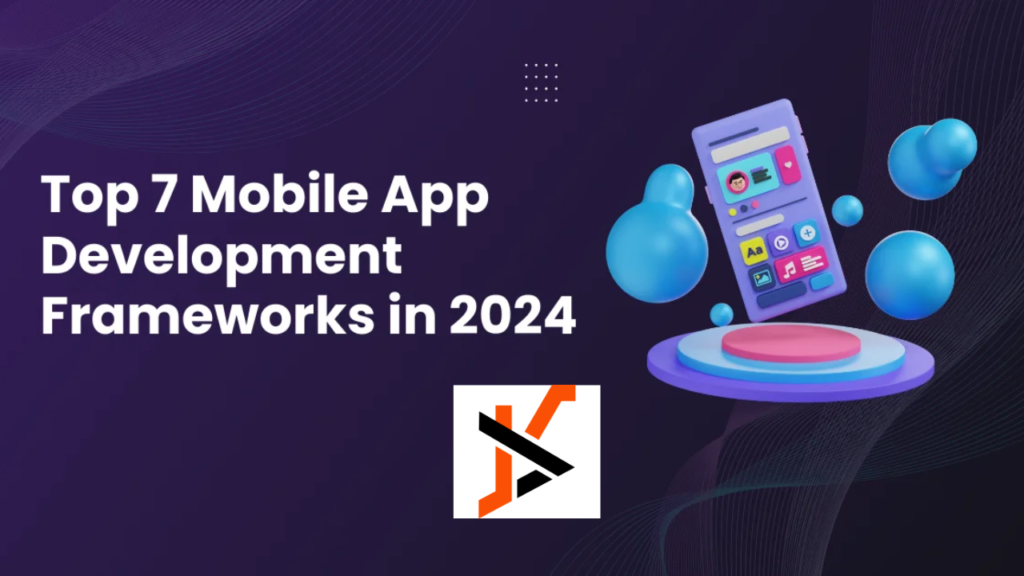Before your venture into mobile app development, remember that your app’s efficiency, success, and delivery highly hinge on selecting the proper framework for the right platform; that is why it is essential to ponder the choices before picking one for your app.
Also, you have more than one option at your disposal today to handpick. Usually, frameworks with significant community support are more efficient from other aspects besides helping with speedy delivery to the market.
This post will briefly list the top 10 frameworks with distinct features and strengths. We have outlined the top preferences of every iOS and Android app development company offering native or cross-platform app development services.
So, let’s get straight to the top 10 mobile app frameworks without further frills and delays.
Top 10 Mobile App Frameworks for Speedy Development
React Native
A wizard in the form of a framework created by Facebook and also being maintained by Facebook as well. It is famous for letting developers write a single codebase capable of running across platforms rather than just native platforms. It allows developers to write efficient and scalable cross-platform applications.
It possesses distinct features like the hot reloading feature that makes changes live automatically without developers having to load the app to witness the changes made. Apart from the desirable reloading feature, it has a modular architecture that enables developers to reuse the same code elsewhere.
Flutter
An open-source, cross-platform framework that another giant, Google, developed. It has immense traction for a plethora of benefits. It allows developers to write natively compiled mobile, web, and desktop applications with a single codebase.
Flutter provides an extensive app development suite that includes pre-built widgets, apps, CLI tools, and other application tools that contribute to the speedy delivery of your app to app stores. As a result of its immense popularity and traction, many agencies and companies started giving Flutter app development services that turned out to be business opportunities for them.
SwiftUI
Apple released Swift UI for its platform. It is famous for streamlining and enriching the process of building sleek and visually appealing user interfaces across Apple platforms such as iOS, macOS, watches, and tvOS. Like React Native, it also shows real-time UI changes, allowing developers to see the live preview.
Xamarin
Xamarin is the origin of Microsoft and has been there for over a decade. It is primarily used for Android app development and comes with libraries and tools specifically designed for developing apps for platforms such as Android, iOS, macOS, and others.
Like Flutter and React Native, it is also an open-source framework that lets you create an enhanced user experience with its enormous template library, enabling developers to utilize once-written code again across different platforms.
Besides being famous for its vast template library, it is known for its native-like performance and user experience. As Microsoft is maintaining it, it is stable and thoroughly reliable.
Ionic
Unlike other frameworks, which giants own, Ionic is an MIT-certified open-source and free mobile app framework based on the synergy of fundamental web technologies, i.e., HTML5, CSS3, and JavaScript, and lets developers write cross-platform applications.
With Ionic, you can create intuitive and interactive hybrid and progressive web applications. It uses the Cordova plugin that gives it access to native components of the mobile system and outright control over the application development process.
Apache Cordova
Apache Cordova, which previously was known as PhoneGap, is an open-source Android framework that lets you build hybrid mobile app development with the help of fundamental web technologies like HTML, CSS, and JavaScript.
It allows developers to write HTML and JavaScript code and enclose it as a native app, allowing businesses and companies to build apps for multiple platforms with a single codebase. It fills the gap between web APIs and mobile devices.
NativeScript
NativeScript is another open-source framework that gives developers leverage to build native mobile apps by coding in top web technologies like JavaScript, TypeScript, and Angular. The allure is it gives you direct access to native APIs and UI components.
It allows for cross-platform development, letting you build apps for both iOS and Android with a single codebase. If you wish for structured development, it enables you to do that by integrating Angular code.
Corona SDK
It is a cross-platform and notably lightweight framework that exists explicitly to let developers develop 2D games and apps. It is based on the Lua scripting language. You know what is the catch here? It enables you to test multiple devices in real-time. The top benefits of Corona SDK are rapid prototyping and development, a preview of changes in the code, and that on various devices. It has pretty extensive community support that helps other developers with the development of cross-platform apps.
Sencha Touch
Sencha Touch is a JS framework primarily used for building mobile web applications with a native-like look and feel. It utilizes technologies like HTML and CSS to create fully responsive and feature-rich mobile apps that perfectly embody the native app experience. As it uses JS as the primary language, it lets you create powerful and fully browser-compatible web apps. It has a library of UI components, allowing developers to produce intricate interfaces.
Conclusion
Today, there is an app for everything! Think of something, search it online, and you will find an app, even on something that you may think there can’t be an app for. That is why today, it is a unique idea that matters and is valued, and if you have an idea in your mind, picking the proper framework will help you code it into a tangible app. We delineated the frameworks companies and agencies use for Android or iOS app development services for speedy development and efficient and successful mobile experiences that users instantly appreciate. These frameworks have outrightly streamlined and expedited the app development process so that developers can now create big apps with fewer lines of code.

